How Two Brothers Who Grew Up in a Two-Room Rented House Built a Rs. 4,212 Crore Turnover Pharma Giant
Shyla F
|
24-August-2024
Vol 15 | Issue 34
Hailing from a humble background, two brothers, Sanjeev and Sandeep Jain, have transformed their small beginnings into a pharmaceutical powerhouse, Akums Drugs and Pharmaceticals.
Growing up in a two-room rented house in Shakti Nagar, New Delhi, the brothers learned the value of hard work early in life, as they watched their father toil in the pharmaceutical industry. In 1984, they started a small wholesale pharmaceutical shop in Old Delhi with just Rs. 1.5 lakh.
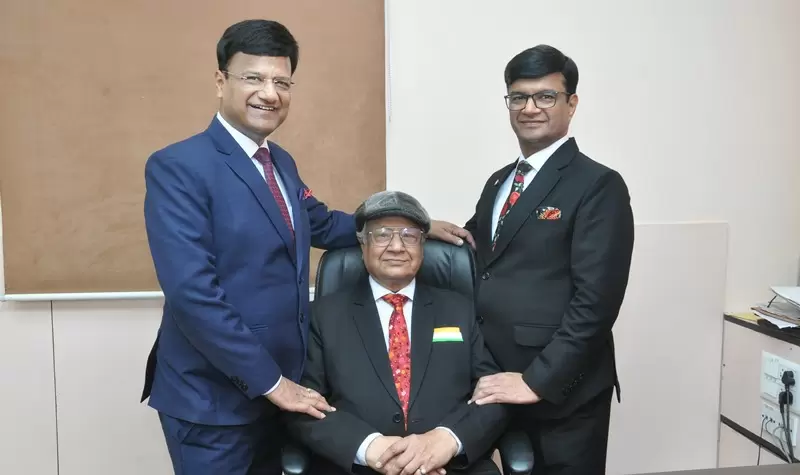
| Sandeep Jain (left) and Sanjeev Jain (extreme right), co-founders, Akums Drugs and Pharmaceuticals, with their father (Photos: Special Arrangement) |
Their journey from that tiny shop to building Akums Drugs and Pharmaceuticals, a leading pharmaceutical manufacturing company, is truly inspiring.
Today, Akums operates fifteen advanced manufacturing facilities, produces over 18,000 products, and has a strong presence both in India and abroad. The company achieved a remarkable turnover of Rs. 4,212 crore in the last financial year. Akums Pharmaceuticals became a listed company on Aug 6, 2024.
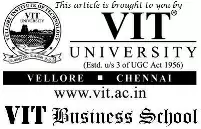
“We used to live in a two-room rented place. I would call it a lower-middle-class setup where we had a roof over our heads and food," says Sandeep, reflecting on his childhood.
"Hand to mouth is a better way to describe our situation. It was a very modest living. Since my grandparents lived in Rohtak, my father had the responsibility of sending them money every month along with his family responsibilities.”
Born in 1967, Sandeep finished his Class 12 in 1984 from Government Boys S.S. School, Roop Nagar, Delhi. Both Sandeep and his brother always had a business mindset, so after school, Sandeep enrolled as a private student at Delhi University and completed his B.Com in 1987.
Sandeep's father, originally from Rohtak, had moved to Delhi in 1961 for better job prospects. He worked in the wholesale pharmaceutical industry for around 20 years before joining Dalmia Cement, where he eventually retired as Company Secretary.
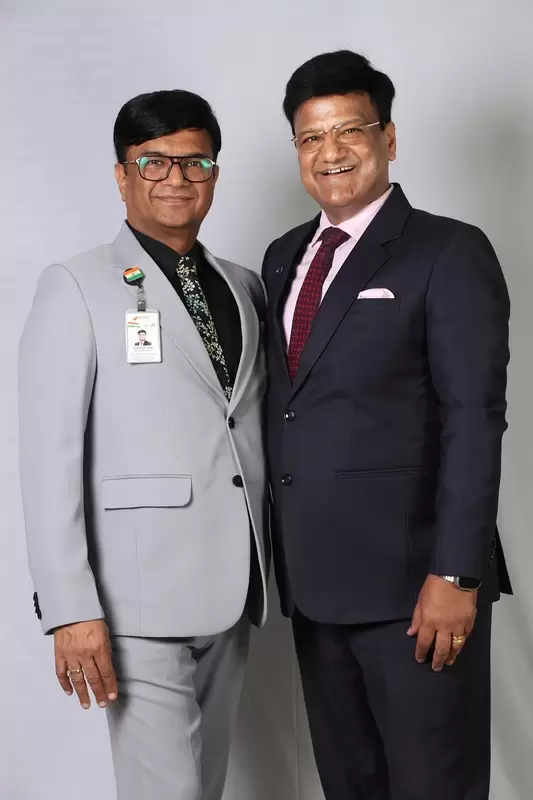
| Sandeep and Sanjeev started their pharma business from a 55 sq ft shop in Delhi |
In 1984, their father gave the brothers Rs. 1.5 lakh to start a business. “Initially, we thought of opening a juice or pan shop for regular income. But since our father had experience in the wholesale pharmaceutical industry before joining Dalmia Cement, we decided to enter that field," Sandeep recalls.
"We took a 55 sq. feet shop at Bhagirath Palace in Old Delhi, which is the wholesale pharmacy market. We ran it for the next 20 years and gradually expanded by adding more shops."
Sanjeev Jain notes that as their pharmaceutical business began to grow, they noticed there was a notable shortage of medicines in the market. There was a gap between demand and supply.
Every year, when the monsoon came, malaria outbreaks would begin, but the medicine was not available. To be prepared, they had to start stocking up as early as April. When they asked the manufacturers why this was happening, they were told that the production capacity, especially for tablets and capsules, was not enough.
One day, they asked the owner of a prominent pharmaceutical company why they were not expanding their production capacity. He replied with a challenge: "Start your factory, and we will buy the medicines from you."
This suggestion motivated them to establish a Pharmaceutical Contract Development and Manufacturing Organisation (CDMO). After doing some R&D, the two brothers invested their savings of Rs. 1.17 crore in 2004 to start a production unit in Haridwar, Uttarakhand.
They chose Haridwar because it was an excise-free zone. The money was used to buy land for the pharmaceutical unit and to set up the machines. The two brothers also mortgaged their home in Delhi to raise more funds for the factory.
Setting up the factory was not an easy task for them. The 1.2 lakh sq ft of land they bought in the SIDCUL (State Infrastructure & Industrial Development Corporation Uttarakhand Ltd.) industrial area of Haridwar was in a remote location.
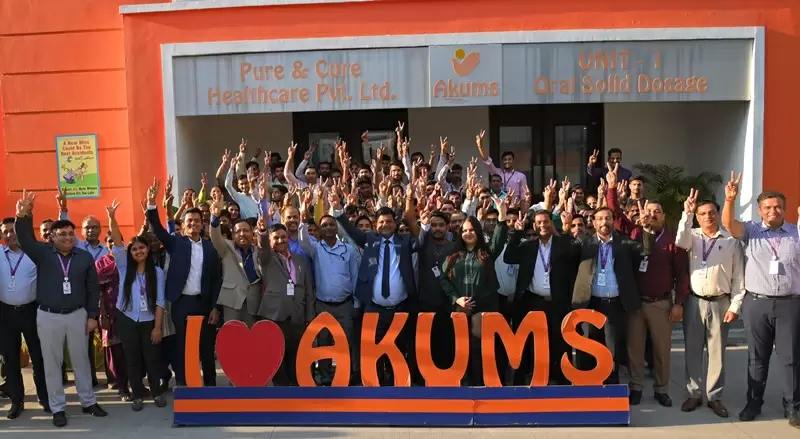
| Sandeep with the top management and some of the employees of Akums |
When they acquired the plot, it lacked basic infrastructure—there were no roads, electricity, or telephone lines. To make the land accessible, Sandeep and his brother hired people to build an 800-metre road at their own expense so that trucks carrying building materials could reach the site.
There was no power supply in that area, so the factory was built using generators whenever needed, and it continued to run on generators for years until the area developed.
After setting up the road, building, and generators, their next challenge was communication. BSNL had no tower in that area.
Sandeep recalls, “To talk to a client, we had to walk 1 kilometre away from the factory because that was the only place where a telephone was available. It took a lot of time, and every time someone had to travel about a kilometre and come back to the factory.”
Even though mobile phones were available at that time, SIDCUL lacked a cell tower, making mobile phones unusable inside the factory premises.
“One day, we decided to test the network of our mobile phones on the factory premises. We typed a message and threw the mobile up towards the sky, and by the time it came back to us, the message was delivered. This gave us the confidence that there were signals up in the air, and something could be done,” shares Sandeep.
“The first thing we did after this small experiment was to set up a small iron tower, just like a basic security tower. Whoever needed to make a call would go up the stairs of the tower, talk to the person, and come back. This way, communication became easier.”
Hiring staff was also a challenge because the factory was in a remote area, and people did not know about the company or job opportunities. However, this issue was resolved in later years.
The factory began its production with just one client, INTAS from Ahmedabad, Gujarat. At the time of incorporation, the company had only 40 employees, most of whom were in production. Akums started with just 12 products. The name Akums is derived from Lord Shiva and also means "unique."
In the initial days, the two brothers managed the sales of the company on their own. However, within the next 2-3 years, Sanjeev took charge of running the company from Delhi, overseeing sales, administration, and purchasing, while Sandeep managed the production facility in Haridwar.
When Akums Pharmaceuticals first started, it focused only on basic product models and common formulas, mostly replicating existing ones. But over time, they began investing in research.
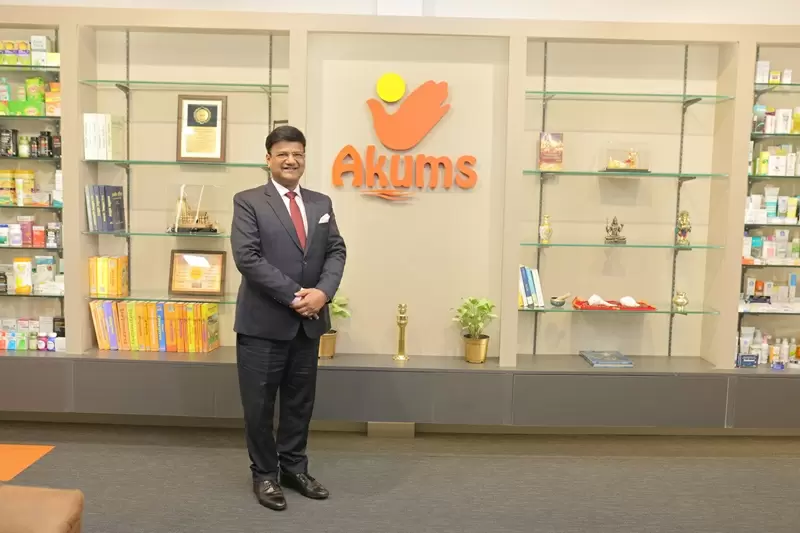
| Sandeep completed his B.Com in 1987 from Delhi University as a private student |
As the business gained momentum and earned the trust of its clients, Akums shifted its focus towards innovation and product development, eventually hiring scientists.
For instance, they developed a unique tablet for Abbott India Ltd. that had another tablet inside it, with both tablets working differently within the body. This was a pioneering product at the time.
Akums' business model is straightforward. It is a complete contract manufacturing firm. Once a client connects with them and specifies their requirements, the R&D division starts working on the product.
After development, the product's shelf life is tested. It is then sent for regulatory approval and subsequently delivered to the client. If the product is a standard one, manufacturing is carried out, and the final product is delivered to the client's location or warehouse.
The group has five R&D centres. Two of these centres are in Haridwar and focus on domestic formulations, one is near Chandigarh, another in Mumbai for export formulations, and one is in Barwala, Haryana.
Akums has also engaged in some unique manufacturing processes, such as transforming bitter pills into sweeter, more palatable forms, reducing large tablets to smaller, easier-to-swallow sizes.
They have masked unpleasant odours and tastes by infusing them with pleasant fragrances and flavours. They have also developed innovative products like multivitamin syrups, flavoured gummies, and more.
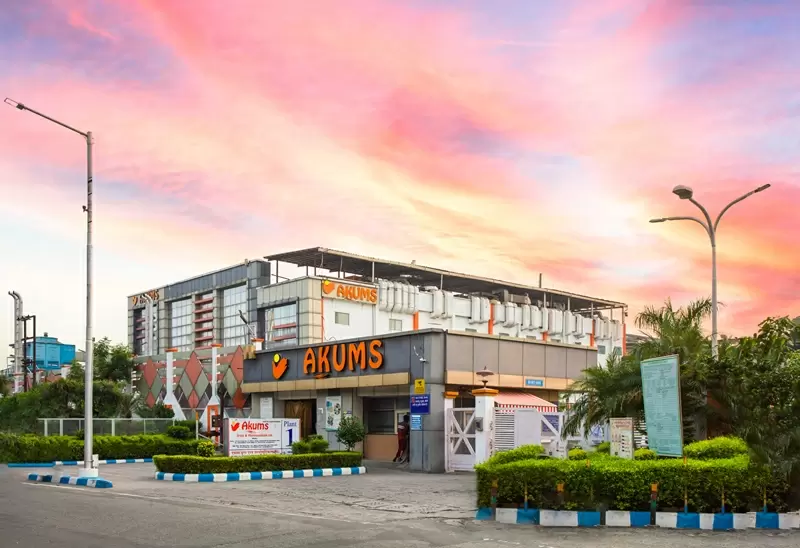
| Akums exports its products to around 60 countries |
Akums produces 50 million units of capsules and syrups every day. The company has a catalogue of 18,000 products and serves 1,500 Indian clients. It also caters to 60 countries around the world. While 95% of its business comes from India, 5% is from exports.
From the very beginning, Sandeep has been in charge of manufacturing and operations at the Haridwar facility, where he continues to work. His family also resides in Haridwar. His elder brother, Sanjeev Jain, handles purchase, finance, and marketing from Delhi.
Sandeep is known for his workaholic nature, having taken less than 40 leaves in the last 40 years. “Even in leisure, I manufacture tablets,” he jokes. “Though I do enjoy the group’s CSR activities, as they give me immense satisfaction.”
Sandeep’s advice to aspiring entrepreneurs is, “Do whatever you want to do with full passion and give your 100% to it. You have to live your dream not by seeing it at night, but by making it happen during the day. I believe an entrepreneur should earn their position through their work, not just through money.” - ©TWL
















